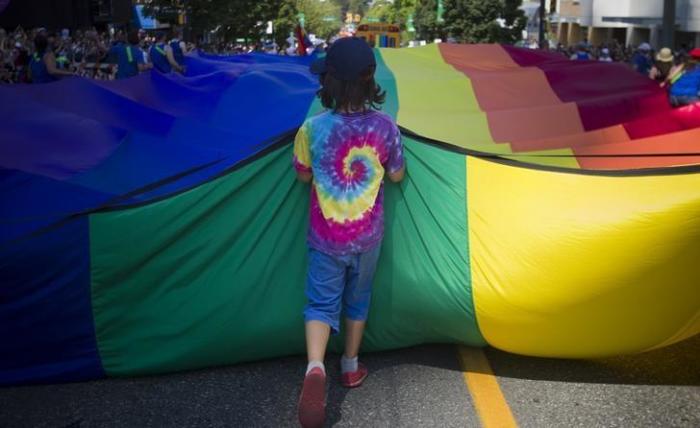Parents whose 6-year-old was taught 'girls are not real' file lawsuit against school, teacher

Parents who filed a human rights complaint against a school where their 6-year-old daughter was being taught that "there’s no such thing as boys and girls” have now filed a lawsuit against the school board, principal, and the teacher.
The teacher, who taught a first grade class at Devonshire Community Public School in Ontario, Canada, last year, presented a YouTube video on gender called "He, She, and They?!?—Gender: Queer Kid Stuff #2," which was part of the lesson plan that day, Pamela Buffone, the mother of the 6-year-old girl, told The Post Millennial earlier this year.
Buffone and her husband subsequently filed a complaint with the Ontario Human Rights Tribunal against the school system after their daughter started worrying she might not be female after watching that video.
Last week, The Justice Centre for Constitutional Freedoms, a legal advocacy organization specializing in Canadian constitutional law that is representing the Buffones and their daughter, filed an amended application noting that child's rights to security of the person and equality under relevant sections of the Canadian Charter of Rights and Freedoms were infringed, Radio Canada International reported Tuesday.
“She was very passionate about all kinds of social justice topics, most of which our daughter really enjoyed learning about,” Buffone said of her daughter, who is now attending a different school, in an interview with Radio Canada International.
The teacher of her first grade class had drawn a "gender spectrum" on the whiteboard and asked the children to identify where they placed on the spectrum. Buffone's daughter picked the furthest end of the spectrum designated "girl." Their human rights complaint claims that the teacher instructed the class that "girls are not real, and boys are not real," which greatly distressed their daughter.
“At the age of 6, she was just figuring out that animals are divided into boys and girls; when she met a new dog on the street, for example, she would ask ‘is it a boy or a girl?,’” Buffone said.
“So she was very confused by what her teacher was saying and was struggling to understand what it meant for her as a girl.”
In an interview with The Christian Post on Thursday, Buffone said they initially filed their application on their own, but with the assistance of a lawyer who was unable to take the case further.
"When the Justice Centre for Constitutional Freedoms agreed to assist us, their lawyers thought we should raise the Charter arguments and highlight that this is also a case of discrimination on the basis of sex, not just gender identity," she explained.
Asked to comment on how the sowing of confusion about sex and gender into the minds of young girls impacts women's rights as a whole, she said it "sends the message that this mystical gender identity we’re all supposed to have is more important than our biology, and that if you don’t conform to a particular stereotype, then you are literally the opposite sex."
"So women’s rights are being redefined away from female rights to the rights of people who identify as a stereotype. It’s a terrible message to be sending to girls or anyone, because it undermines the value and dignity we have as humans by separating what it means to be human from our biological reality," she said.
Despite the assertion from the school system that such lessons are intended to be "inclusive," Buffone believes they have revamped language and that it is important for more parents to voice their objections.
The teacher told the Buffones that “the board policy is that there is gender fluidity,” according to the filed amended application.
"It's becoming increasingly apparent that words like 'inclusive' don't mean what most of us think they should. We should be making gender non-conforming kids feel welcome, not telling the majority of kids that they are 'less than' because they don't have some unique and celebrated identity," Buffone said.
"Parents are likely unaware of how much their kids are being immersed in this messaging. People need to ask questions, get involved, and keep the lines of communication open with their children."
Canada has been a particularly heated center of conflict over the notion of self-declared "gender identity."
In 2016, the Canadian parliament passed the controversial bill known as C-16, which added gender expression and gender identity as protected groups into the Canadian Human Rights Act and its Criminal Code provisions. University of Toronto psychology professor Jordan Peterson's public testimony and central argument against the added provisions — that they unjustly compel speech by forcing people to use language with which they disagree — was the impetus that ultimately launched him to international stardom.
Canadian radical feminists and others, most notably Feminist Current founder and editor Meghan Murphy, who spoke critically about how gender identity ideology and legislation undermines women's sex-based rights, have faced significant threats of rape and death. Murphy was permanently banned from Twitter last year because she referred to a transgender-identified male as "him," which the social media giant deemed a violation of their user rules.
The distress many young children experience at their schools when transitioning to a different gender is introduced has surfaced in recent years amid rapidly spreading transgender activism.
In 2017, controversy ensued in Rocklin, California, when a teacher at an area charter school read a book about gender transition titled "I am Jazz" before holding a gender transition ceremony for one of the 5-year-olds in the class, traumatizing the other students. The school subsequently released a statement disputing the accusations.




























